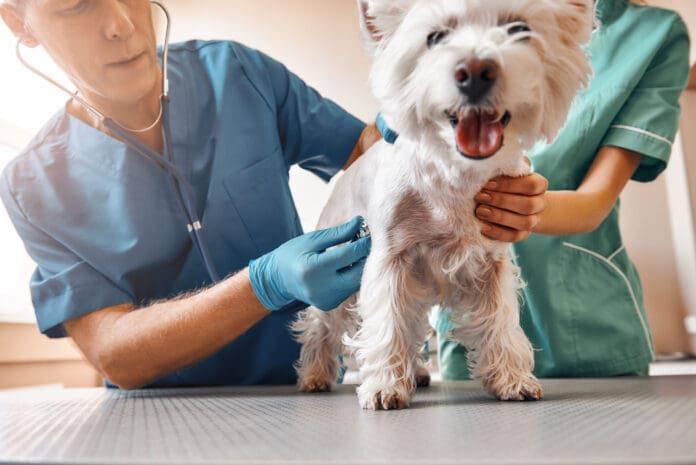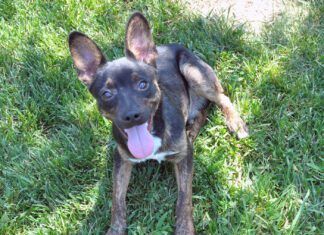Canine pneumonia is a respiratory infection that has moved into the dog’s lower respiratory tract, the bronchioles and lungs themselves. The location of the infection alone makes it harder for your dog to get relief by coughing.
Some dogs with pneumonia may cough, bringing up some discharge. Others will have rapid or painful breathing but lie quietly and not really cough unless they get up and are active. Nasal discharge, generally thick and often pus-like, may be noticed. Most of these dogs seem to feel sick, lying around and not eating or drinking well. Fortunately, the survival
Causes of Dog Pneumonia
The causes of pneumonia are numerous, with some more serious than others. How does a dog even get pneumonia?
There are four categories of pneumonia:
- Bacterial
- Viral
- Fungal
- Aspiration
Almost always, the dog must have inhaled a pathogen or infectious agent. He might have inhaled some droplets when another dog sneezed or coughed nearby and released viral particles or bacteria. Walking in the woods, he may have snorted in some fungal spores. While vomiting, he may have inhaled some food particles.
Less commonly, your dog may breathe in smoke or other toxic fumes. All these possible causes interfere with the normal exchange of carbon dioxide for oxygen in your dog’s lungs. The alveoli (air sacs) in the lungs may fill with fluid, pus, or inflammatory cells and interfere with oxygen movement.
Diagnosis of Pneumonia
The suspected cause of the pneumonia will influence treatment and prognosis. Your veterinarian will start with diagnostic procedures. Initially, auscultation (listening to your dog’s chest with a stethoscope) will give your veterinarian an idea of the problem. A complete history will provide possible exposures to various pathogens. Pneumonias often have multiple causes, such as bacteria acting with viruses to cause the illness.
The next step is usually X-rays. Some pneumonias will have a characteristic appearance on a film. Throat or nasal swabs may be taken and sometimes a tracheal wash (flushing some sterile fluid into the trachea and then drawing it back up) will be done. These lab techniques may identify bacteria or fungi and provide material for cultures, so your veterinarian can prescribe the most efficacious antibiotics.
Treatment of Dog Pneumonia
Treatment will depend on the pneumonia severity. Very ill dogs will need to be hospitalized, given intravenous (IV) fluids and supplemental oxygen, along with specific medications to battle the pathogen responsible.
Dogs who are still eating and drinking may be sent home with restrictions on activity. Nebulization can help, either with a nebulizer or simply keeping your dog in the bathroom while you shower. The warm steam helps to loosen debris in the lungs, making it easier for your dog to cough it up.
Coupage can help. In this nursing technique, which can be done at home, you use a cupped hand to lightly rap on your dog’s chest. This can help to loosen debris. Ask your veterinarian to show you how to do this.
Overall, about 80% of all dogs with pneumonia survive. Puppies, elderly dogs, and dogs with other chronic health conditions have a lower survival rate. Fungal pneumonias are notoriously difficult to treat and have a worse prognosis than bacterial pneumonia.






